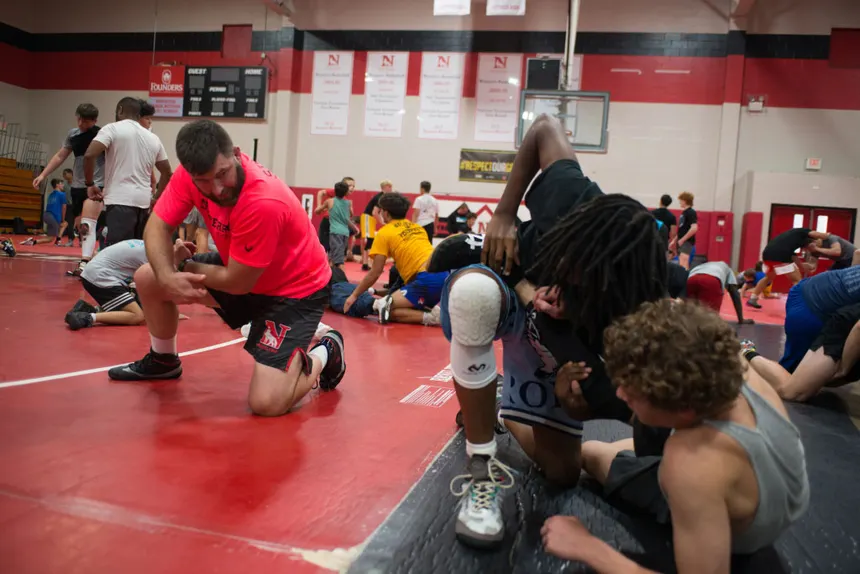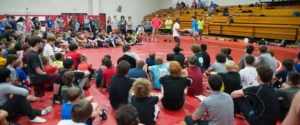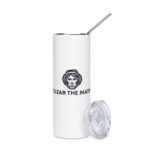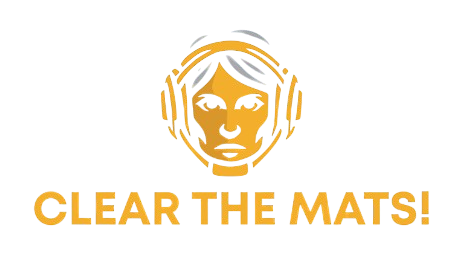
Should Your Wrestler Do Off-Season Camps? A Parent’s Guide To Making The Call
April 16, 2025
Do you think your young wrestler can reach the next level even after the season ends? While some parents see the off-season as a break, it’s actually a golden opportunity for young athletes to grow — both mentally and on the mat.
Whether it’s learning new skills or staying in shape, off-season wrestling offers plenty of benefits. But with so many options available, how do you know what’s right for your child? Today, we’ll help you weigh the pros and better understand your wrestler’s needs so you can make more informed decisions as a parent.
Benefits Of Off-Season Wrestling Camps
Improvement In Skills
Off-season camps allow young wrestlers to improve their techniques without the pressure of an upcoming match — with dedication and time on the mat, your child can fine-tune their form, correct their bad habits, and increase their skill set in a more structured environment full of high-level coaches as well as experienced clinicians.
Mental Toughness
As mentioned, off-spring camps don’t just help your young wrestler physically but also mentally. Your child will come across new challenges through drills and unfamiliar partners, all of which can help in building grit along with resilience. Going through fatigue or frustration in a supporting camp environment can aid in strengthening their mindset when the regular season rolls back.
Exposure to Diverse Styles
Different coaches from different regions bring their own unique styles, and off-season camps are the best way to experience them. It doesn’t matter if it’s a different setup, takedown, or strategy; this exposure can help your young wrestler become more adaptable and well-rounded, which is valuable in a sport where quick thinking can make a major difference.
Team Building
Whether they go with their teammates or make new friends at the camp, these camps provide a unique way to build camaraderie. Just going through training sessions, team activities, or even downtime can help create bonds that can carry over to the season. It is also a great way to remind young wrestlers that while the wrestling match might be fought individually, it does thrive on team support and spirit.
College Exposure
Most off-season camps are held on a college campus or have college-level coaches, which is a great way for our child to experience what the next level looks like, how college athletes’ terrain, coaches expectations, and what it takes to compete beyond high school. This exposure alone is enough for motivated athletes to become inspired.

Things to Consider Before Enrolling
Age and Experience
Before enrolling, parents have to keep in mind that different camps cater to different wrestlers — consider your child’s age, maturity, and experience level before enrolling them. This is due to the fact that some camps can be quite intense for young wrestlers, and they might benefit more from a lighter format.
Camp Reputation
You will have to do a little homework yourself before sending your child. Check the camp’s history, coaching staff, and reviews from other parents. A well-run camp with experienced and reputable coaches can make a difference in your child’s experience of the camp.
Cost and Logistics
Some of these camps can be really pricey, once you take in factors like travel, lodging, meals, etc. Calculate the total investment and see if it fits your family’s schedule and budget before making the final decision.
Camp Focus
Also, make sure that the camp lines up with your young wrestler’s goal — whether it’s improving their basics, competing more, or preparing for college. The right fit will ensure that your child makes the most of this experience.
Potential Drawbacks
- Risk of Burnout — Without downtime, your young athlete might get physically or mentally exhausted. Don’t forget, every young wrestler needs time to rest, reset, and enjoy their time being a kid.
- Injury Concerns — Intense training and new partners also increase the chances of injuries, it is best to balance hard work with smart, safe practice.
- Financial Strain — As mentioned, camp fees, travel, and gear costs can add up quickly. This is why parents have to make sure that it doesn’t stretch their finances more than these camps are truly worth.
Making the Decision
If you are on the ropes for deciding if you want to send your young athlete to off-season camp, start by thinking about your child’s goals — i.e., if they are serious about wrestling or are just testing the waters. Having an open conversation about their interest and comfort level and sending them to a shorter camp can be a great way to see if it is a good fit for them or not.
Final Thoughts
Parents have to realize that every wrestler is different, and if they want to decide whether their young athlete has to go on an off-spring camp, it has to reflect their unique needs and whether or not they are ready. If you have more concerns or just want to learn more ways to help your young wrestler, visit Wrestler Mom for trusted and reliable guides.
Our Products
Popular Posts
-
 The Silent MVP — How Wrestling Moms Keep the Season Running Smoothly
The Silent MVP — How Wrestling Moms Keep the Season Running Smoothly -
 What to Pack in Your Wrestler’s Tournament Bag - So You Don’t Forget Anything Important
What to Pack in Your Wrestler’s Tournament Bag - So You Don’t Forget Anything Important -
 A Mat-Side Survival Guide for Wrestling Parents (Snacks, Seats, and Sanity)
A Mat-Side Survival Guide for Wrestling Parents (Snacks, Seats, and Sanity) -
 Raising Graceful Champions: Wrestler Moms can Teach Young Wrestlers Good Sportsmanship
Raising Graceful Champions: Wrestler Moms can Teach Young Wrestlers Good Sportsmanship -
 Wrestling on a Budget: How Parents Can Save Big on Gear and Travel
Wrestling on a Budget: How Parents Can Save Big on Gear and Travel -
 Should Your Wrestler Do Off-Season Camps? A Parent’s Guide To Making The Call
Should Your Wrestler Do Off-Season Camps? A Parent’s Guide To Making The Call -
 Hydration Hacks — Keeping Wrestlers Fueled Without Overdoing It
Hydration Hacks — Keeping Wrestlers Fueled Without Overdoing It -
 Why Wrestling Builds Grit And How to Encourage It at Home.
Why Wrestling Builds Grit And How to Encourage It at Home.









